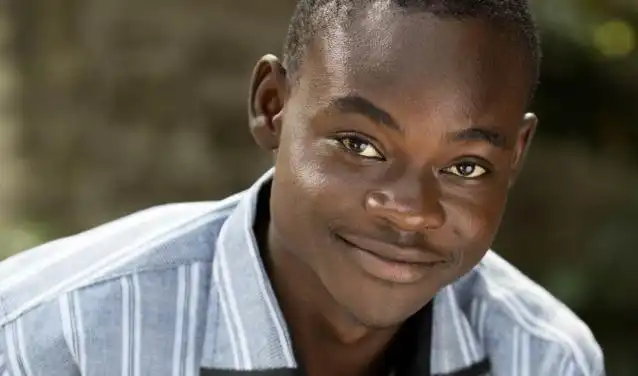Home>Committed to Africa
25.12.2017
Committed to Africa
Romaric Compaoré comes from Burkina Faso and is working on a project to facilitate access to water in his village. Romaric is part of the first cohort of Sciences Po - MasterCard Foundation Scholars, a programme to educate and support bright young African students with a personal commitment to changing the world around them.
Why did you choose the Europe-Africa programme at Sciences Po?
I wanted to get to know my continent better so I could take an active part in its development. I was looking for a really African programme, not like the African Studies programmes at American universities. I wanted a strong African focus. When I heard about Sciences Po’s Europe-Africa programme at my high school in Ouagadougou, I knew it was for me. Then when I learned there was a Mastercard Foundation scholarship for African students keen to contribute to the continent’s development, that was the icing on the cake.
Where does this desire to become an expert on Africa come from?
The development of my country, Burkina Faso, is closely linked to the development of the continent’s other countries. African countries have to solve their problems together. I want to devote my efforts to the economical and political integration of African countries. That’s why I want to become an expert on the continent. Later, I would like to join an organisation like the African Union, or start a company to work towards African integration.
When you were 16, you launched a project to build a water tower in your village in Burkina Faso. Can you tell us more?
It was at high school that I started the Yakin project, named after my village in Burkina Faso. The goal is to build a water tower in Yakin, a village where the main economic activity is market gardening.
But market gardening is only possible for three months a year, in the rainy season. Over those three months, the villagers manage to grow enough produce for the whole village. But after the three months, in the dry season, water is difficult to find. The children are tasked with fetching water and leave school. The women can’t go to the hospital because it involves costs they can’t pay. Without treatment, many children die of fever.
If water were available all year, the village would have income all year. Solving the water problem would solve most of the village’s other problems.
I started this project in Year 11 and I plan to finish it in 2018.
How do you plan to finish the water tower project in Burkina Faso while you’re studying at Sciences Po?
I’ve already raised quite a lot of money, but we still need more to make the project a reality. When I arrived at Sciences Po, I presented the project and the Reims students chose it as one of student initiatives for the year, which means I’ll be able to keep working on it and raising funds, even at a distance. My goal for 2018 is to raise the necessary funds to build the water tower and get it up and running.
Related links
- "A healthy passion for helping others", interview from Ashale Chi
- About the Sciences Po undergraduate College and the Europe-Africa programme
- About the MasterCard Foundation programme at Sciences Po

